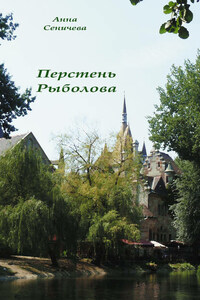LADY BETTY'S INDISCRETION
"Horry! I am sick to death of it!"
There was a servant in the room collecting the tea-cups; but Lady Betty Stafford, having been reared in the purple, was not to be deterred from speaking her mind by a servant. Her cousin was either more prudent or less vivacious. He did not answer on the instant, but stood gazing through one of the windows at the leafless trees and slow-dropping rain in the Mall. He only turned when Lady Betty pettishly repeated her statement.
"Had a bad time?" he vouchsafed, dropping into a chair near her, and looking first at her, in a good-natured way, and then at his boots, which he seemed to approve.
"Horrid!" she replied.
"Many people here?"
"Hordes of them! Whole tribes!" she exclaimed. She was a little woman, plump and pretty, with a pale, clear complexion, and bright eyes. "I am bored beyond belief. And-and I have not seen Stafford since morning," she added.
"Cabinet council?"
"Yes!" she answered viciously. "A cabinet council, and a privy council, and a board of trade, and a board of green cloth, and all the other boards! Horry, I am sick to death of it! What is the use of it all?"
"Don't do it," he said oracularly, still admiring his boots. "Country go to the dogs!"
"Let it!" she retorted, not relenting a whit. "I wish it would. I wish the dogs joy of it!"
He made an extraordinary effort at diffuseness. "I thought," he said, "that you were becoming political, Betty. Going to write something, and all that."
"Rubbish! But here is Mr. Atlay. Mr. Atlay, will you have a cup of tea?" she continued, addressing the new-comer. "There will be some here presently. Where is Mr. Stafford?"
"Mr. Stafford will take a cup of tea in the library, Lady Betty," the secretary replied. "He asked, me to bring it to him. He is copying an important paper."
Sir Horace forsook his boots, and in a fit of momentary interest asked, "They have come to terms?"
The secretary nodded. Lady Betty said "Pshaw!" A man brought in the fresh teapot. The next moment Mr. Stafford himself came into the room, an open telegram in his hand.
He nodded pleasantly to his wife and her cousin. But his thin, dark face wore-it generally did-a preoccupied look. Country people to whom he was pointed out in the street called him, according to their political leanings, either insignificant, or a prig, or a "dry sort"; or sometimes said, "How young he is!" But those whose fate it was to face the Minister in the House knew that there was something in him more to be feared even than his imperturbability, his honesty, or his precision-and that was a sudden fiery heat, which was apt to carry away the House at unexpected times. On one of these occasions, it was rumored, Lady Betty Champion had seen him, and fallen in love with him. Why he had thrown the handkerchief to her-that was another matter; and whether the apparently incongruous match would answer-that, too, remained to be seen.
"More telegrams?" she cried. "It rains telegrams! how I hate them!"
"Why?" he said. "Why should you?" He really wondered.
She made a face at him. "Here is your tea," she said abruptly.
"Thank you; you are very good," he replied. He took the cup and set it down absently. "Atlay," he said, speaking to the secretary, "you have not corrected the report of my speech at the Club, have you? No, I know you have had no time. Will you run your eye over it, and see if it is all right, and send it to the Times-I do not think I need to see it-by eleven o'clock at latest? The editor," he continued, tapping the pink paper in his hand, "seems to doubt us. I have to go to Fitzgerald's now; so you must also copy Lord Pilgrimstone's terms, if you please. I proposed to do it myself, but I shall be with you before you have finished."
"What are the terms?" Lady Betty asked. "Lord Pilgrimstone has not agreed to-"
"To permit me to communicate them?" he replied, with a grave smile. "No. So you must pardon me, my dear. I have passed my word for absolute secrecy. Indeed, it is as important to me as to Pilgrimstone that they should not be divulged."
"They are sure to leak out," she retorted. "They always do."
"Well, it will not be through me, I hope."
She stamped her foot on the carpet. "I should like to get them, and send them to the Times!" she cried, her eyes flashing-he was so provoking! "And let all the world know them! I vow I should!"
He looked his astonishment, while the other two laughed, partly to avoid embarrassment, perhaps. She often said these things, and no one took them seriously.
"You had better play the secretary for once, Lady Betty," said Atlay, who was related to his chief. "You will then be able to satisfy your curiosity. Shall I resign pro tem.?"
She looked eagerly at her husband for the third part of a second-for assent, perhaps. But she read no playfulness in his face, and her own fell. He was thinking about other things. "No," she said, almost sullenly, dropping her eyes to the carpet. "I should not spell well enough."
Soon after that they dispersed; this being Wednesday, Mr. Stafford's day for dining out. At that time Ministers dined only twice a week in session-on Wednesday and Sunday; and Sunday was often sacred to the children where there were any, lest they should grow up and not know their father by sight. At a quarter to eight Lady Betty came into the library, and found her husband still at his desk, a pile of papers before him awaiting his signature. As a fact, he had only just sat down, displacing his secretary, who had gone upstairs to dress.














